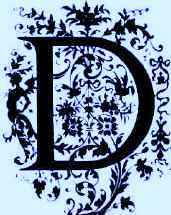|
Dionysos
Moderatore
  

Città: Heidelberg

1913 Messaggi |
 Inserito il - 07 giugno 2009 : 01:20:01 Inserito il - 07 giugno 2009 : 01:20:01





|
Forse, direte, è una scemenza...eppure lo trovo uno spunto affascinante:
Is Mate Choice in Humans MHC-Dependent?
Raphae¨ lle Chaix1,2*, Chen Cao3, Peter Donnelly1,4
1 Department of Statistics, University of Oxford
2 Unite´ d’Eco-Anthropologie, Paris
3 Partner Institute for Computational Biology, Shanghai
4 The Wellcome Trust Centre for Human Genetics, Oxford
In several species, including rodents and fish, it has been shown that the Major Histocompatibility Complex (MHC)
influences mating preferences and, in some cases, that this may be mediated by preferences based on body odour. In
humans, the picture has been less clear. Several studies have reported a tendency for humans to prefer MHC-dissimilar
mates, a sexual selection that would favour the production of MHC-heterozygous offspring, who would be more resistant to
pathogens, but these results are unsupported by other studies. Here, we report analyses of genome-wide genotype data
(from the HapMap II dataset) and HLA types in African and European American couples to test whether humans tend to
choose MHC-dissimilar mates. In order to distinguish MHC-specific effects from genome-wide effects, the pattern of
similarity in the MHC region is compared to the pattern in the rest of the genome. African spouses show no significant
pattern of similarity/dissimilarity across the MHC region (relatedness coefficient, R = 0.015, p = 0.23), whereas across the
genome, they are more similar than random pairs of individuals (genome-wide R = 0.00185, p,1023). We discuss several
explanations for these observations, including demographic effects. On the other hand, the sampled European American
couples are significantly more MHC-dissimilar than random pairs of individuals (R =20.043, p = 0.015), and this pattern of
dissimilarity is extreme when compared to the rest of the genome, both globally (genome-wide R =20.00016, p = 0.739)
and when broken into windows having the same length and recombination rate as the MHC (only nine genomic regions
exhibit a higher level of genetic dissimilarity between spouses than does the MHC). This study thus supports the hypothesis
that the MHC influences mate choice in some human populations.
PLoS Genetics | September 2008 | Volume 4 | Issue 9 | e1000184
September 2008 | Volume 4 | Issue 9 | e1000184 |
Volere libera : questa é la vera dottrina della volontà e della libertà
(F.W. Nietzsche)
Less Jim Morrison, more Sean Morrison!
|
 |
|





